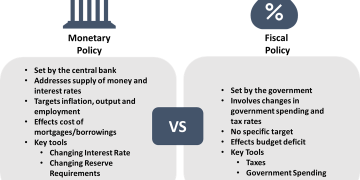Introduction: Technology as a Redistribution of Power
Throughout history, technological innovations have always shifted the balance of power. The printing press weakened religious monopolies, the internet disrupted traditional media, and now blockchain technology challenges centralized institutions. At its core, blockchain is not simply a technological tool—it is a philosophy of decentralization, reshaping the way power, trust, and authority are organized in society.
The implications of this shift are profound. Blockchain technology promises to redistribute control from governments, banks, and corporations toward individuals and communities. Yet, it also raises complex questions: who benefits, who loses, and what new power structures might emerge?
1. The Ideological Roots of Decentralization
1.1 The Cypherpunk Movement
- Early advocates of privacy and digital freedom inspired blockchain’s ethos.
- Aimed to create systems free from surveillance and centralized control.
1.2 Bitcoin as Political Statement
- Bitcoin (2009) was not only a financial experiment but also a critique of central banks after the 2008 crisis.
- Its embedded message—“Chancellor on brink of second bailout for banks”—highlighted distrust in existing institutions.
1.3 Decentralization as a Broader Paradigm
- Beyond finance, decentralization resonates with demands for autonomy, transparency, and fairness.
- Embodies a shift from hierarchies to networks.
2. Social Implications: Redefining Identity and Community
2.1 Digital Identity and Self-Sovereignty
- Blockchain enables self-managed digital identities.
- Could reduce reliance on governments and corporations for verification.
2.2 New Forms of Community
- Decentralized Autonomous Organizations (DAOs) allow people to collaborate without traditional institutions.
- Online communities pool resources and govern themselves via smart contracts.
2.3 Data Ownership and Privacy
- Current digital economy concentrates data in the hands of big tech firms.
- Blockchain challenges this by enabling individuals to own and control personal data.
3. Economic Implications: Disruption and Redistribution

3.1 The End of Intermediaries?
- Banks, payment providers, and brokers face disintermediation.
- Peer-to-peer systems promise efficiency but threaten traditional business models.
3.2 Wealth Creation and Inequality
- Early adopters of cryptocurrencies gained enormous wealth.
- Raises concerns about whether decentralization reduces or amplifies inequality.
3.3 Token Economies and New Business Models
- NFTs, DeFi, and tokenized assets reshape how value is created and exchanged.
- Opens access to investment but also generates speculative bubbles.
4. Political and Governance Implications
4.1 State Sovereignty vs. Decentralization
- Governments see blockchain as both opportunity and threat.
- Central Bank Digital Currencies (CBDCs) reflect an attempt to harness technology while retaining control.
4.2 Democracy and Decentralized Governance
- DAOs experiment with “on-chain democracy,” where decisions are transparent and automated.
- Raises debates about efficiency vs. inclusiveness in governance.
4.3 Geopolitical Competition
- U.S., China, and Europe pursue different blockchain strategies.
- Digital currencies become tools of international power struggles.
5. Challenges of Decentralization
- Scalability vs. Idealism: Decentralized systems often trade efficiency for autonomy.
- Regulation vs. Freedom: Governments fear loss of control over monetary policy and taxation.
- New Concentrations of Power: Mining pools, crypto exchanges, and tech elites may recreate old hierarchies.
- Trust in Code: “Code is law” philosophy raises questions of accountability when systems fail.
6. Future Pathways: Multiple Possible Worlds
Scenario 1: Decentralized Utopia
- Blockchain empowers individuals, reduces inequality, and builds fairer systems.
Scenario 2: State Capture of Blockchain
- Governments co-opt blockchain through CBDCs and surveillance infrastructure.
Scenario 3: Corporate Domination
- Big tech integrates blockchain but recentralizes control in new ways.
Scenario 4: Hybrid Systems
- A balance emerges, with decentralized communities coexisting with regulated institutions.
Conclusion: Blockchain as a Political Technology
Blockchain is not just a ledger—it is a political experiment embedded in technology. Its push toward decentralization challenges the way societies organize trust, authority, and power.
The implications are paradoxical: while blockchain empowers individuals and communities, it can also create new inequalities and power concentrations. While it challenges state sovereignty, states themselves adapt blockchain to reinforce control.
The real significance of blockchain lies in its role as a new architecture of power. Whether it leads to greater freedom or new forms of domination depends not only on technology itself but on how societies choose to adopt, regulate, and govern it.
In the 21st century, blockchain may be remembered less for enabling cryptocurrencies and more for reshaping the politics of trust, identity, and authority.
















































